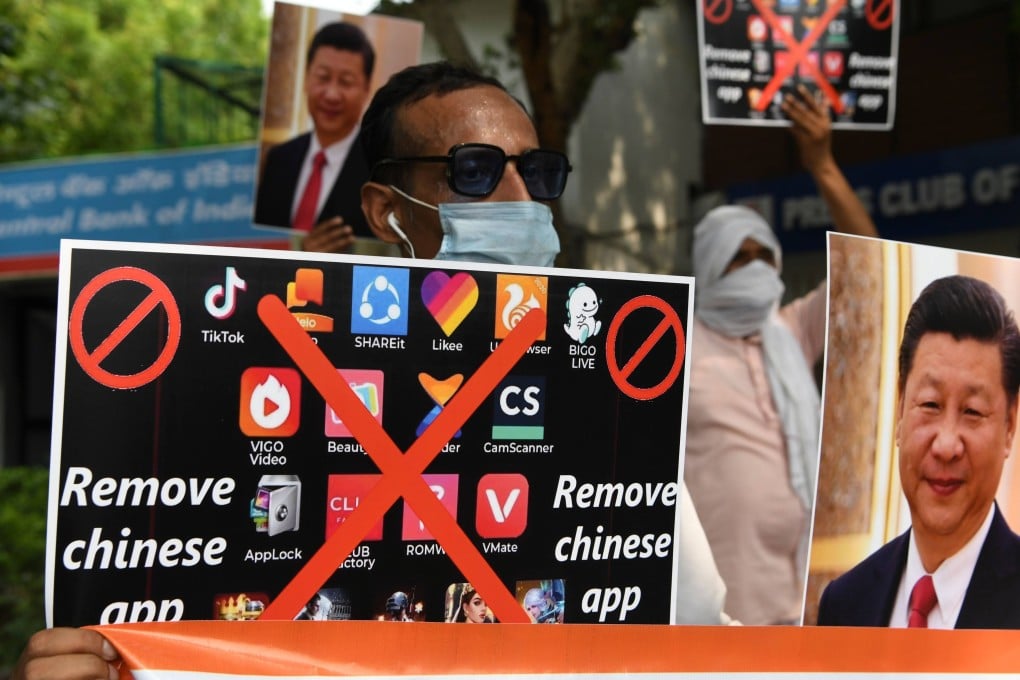Advertisement
India-China border tension: app developers, tech sector win with Chinese apps banned
- Since 2020, New Delhi has banned more than 220 Chinese apps, including 54 just last month, in a blow to publishers that saw India as the next growth market
- Analysts said India’s bans helped foster home-grown developers, just as China’s cyber sovereignty policy froze out foreign competitors over a decade ago
Reading Time:5 minutes
Why you can trust SCMP
5

Penny MacRaein New Delhi
If there’s been one big winner from bristling India-China border tensions, it has been India’s army of app developers.
Advertisement
In June 2020, two weeks after the worst fighting in half a century along their shared border, New Delhi took aim at leading Chinese tech firms including Tencent, Alibaba and Baidu, by banning 59 mobile apps. Alibaba owns the South China Morning Post.
The ban was part of New Delhi’s economic retaliation for a clash that it blamed China for instigating – an accusation Beijing has dismissed. Among the apps banned was ByteDance’s hugely popular TikTok, the first Chinese short-video sharing platform with a global fan base.

So far, New Delhi has banned more than 220 Chinese apps, including 54 just last month. The prohibition has been a blow to China’s app publishers that saw India as the next great growth market.
Some 65 per cent of India’s 1.4 billion population is aged below 35, and 825 million people in the country are connected to the internet – a number that is expected to climb by another 300 million by 2025. China, by comparison, already has 1.03 billion internet users, according to state news agency Xinhua.
For India’s app makers, the bans have been a boon in helping foster a home-grown tech sector. “Indian consumers have moved on to substitutes,” said Pranav Pai, managing partner of 3one4 Capital, an early-stage venture-capital firm based in Bangalore. “The Chinese apps weren’t unique. It’s been a fairly simple migration to competing apps.”
Advertisement

Advertisement